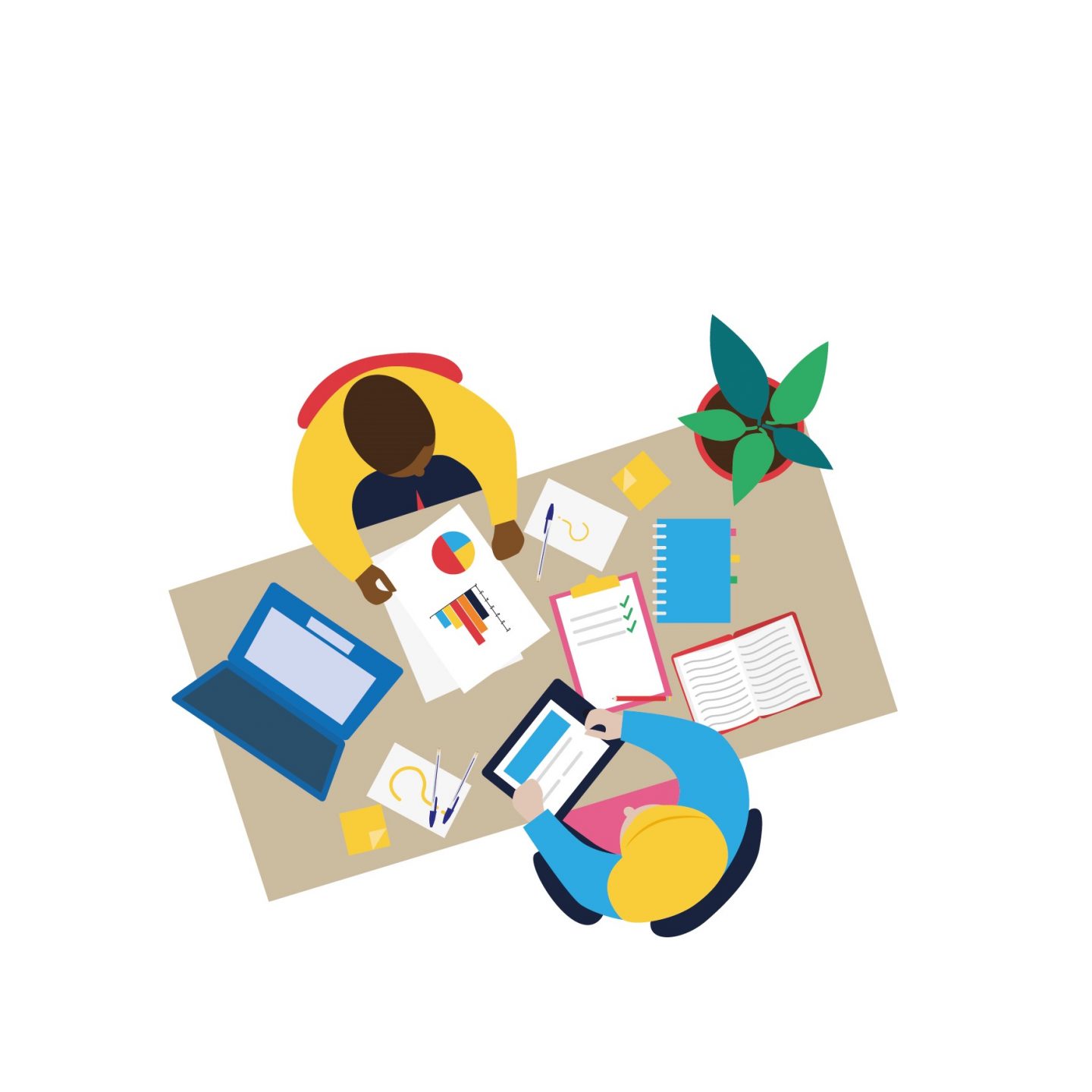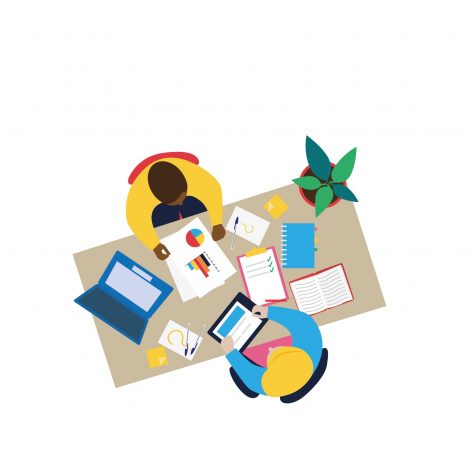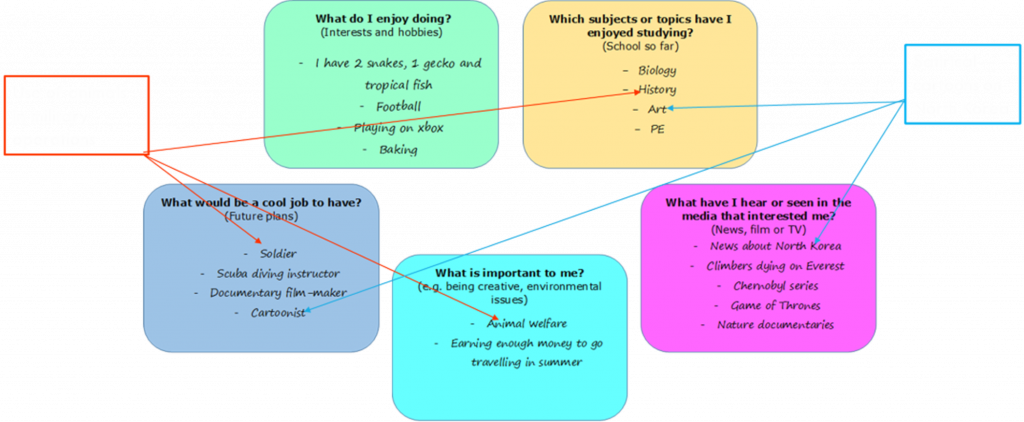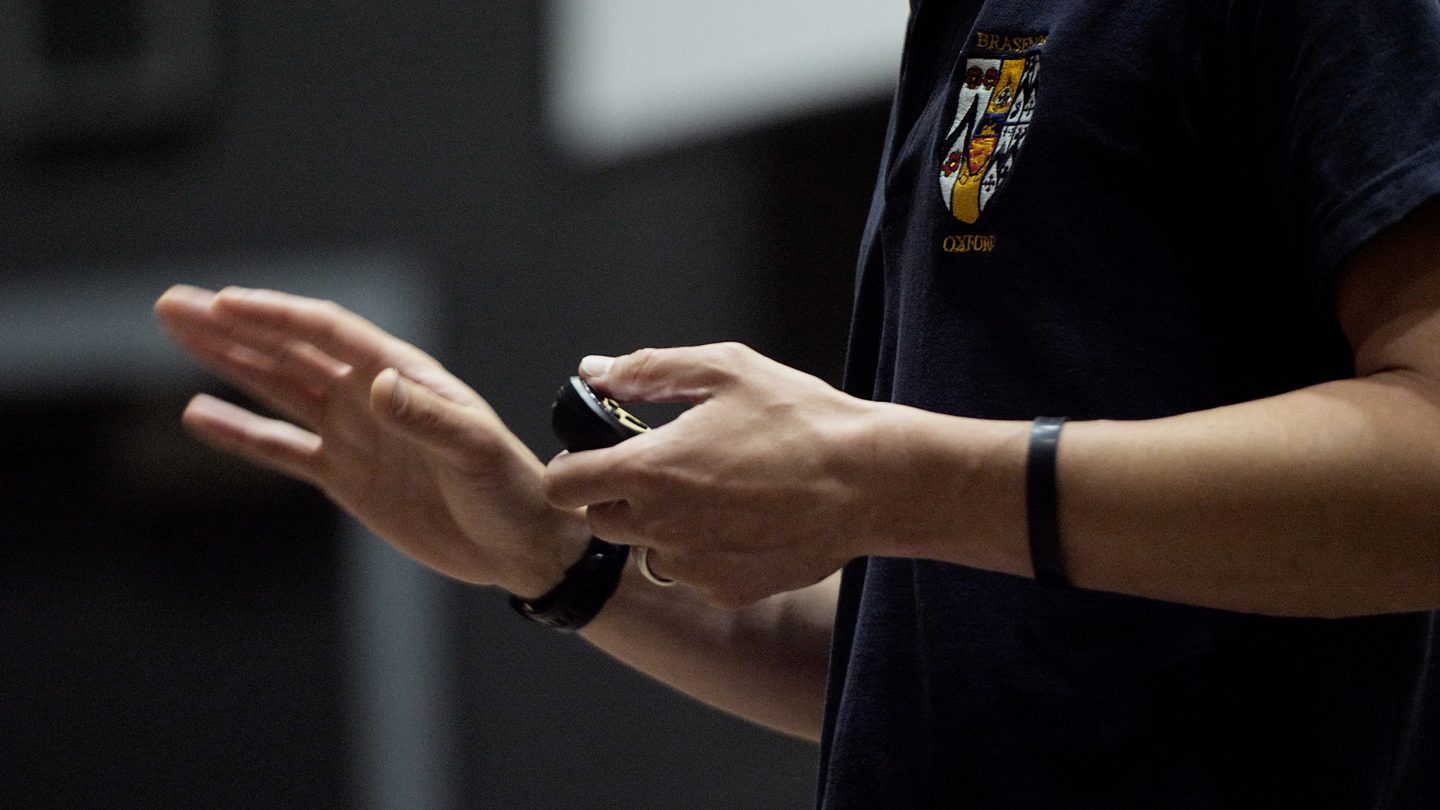
Research question: where to start
Part of Big Questions Little Questions (BQLQ), critical thinking skills for sixth form students from the University of Oxford
![]()
Some of you may already have an idea of what you might want to do for your independent research project, but for most of us, getting started is generally the hardest part. In this section, we’ll give you a few pointers to get you started with choosing your topic.
A good way to get started is to brainstorm or list the things that you find interesting in different areas of your life, and then think of ways that you can connect them together.

Tip!
To organise your ideas and keep track of your topics of interest, you can make a diagram in a notebook, keep a list on your phone, or use the worksheet that we have produced to go along with this resource.
It is often possible to connect the interests that you have outside school with those you have in school to make a question that’s not only strong but also interesting to you. For example, outside school you might be into video games and in school enjoy PE and Sports. You might therefore decide to look at how e-sports have developed and whether you would classify them as sports, or consider the evolution of FIFA and why the series is perhaps as much if not more popular than the actual sport that it simulates.
Alternatively, you might enjoy art and have a keen interest in biology. You could decide to look into how human anatomy was represented artistically by, say, Leonardo Da Vinci or in the works of Vesalius, or choose the works one of the famous artists of botany. You might decide to visit a gallery or museum or look at digitised collections online. This could inspire you to write about the representation of science in art or literature, or investigate how art can bring science closer to the public, or how notions different notions past and present can be traced in illustration.

A personal example
I will never forget the example of my History teacher at school who was very fond of the Eurovision Song Contest but was doing a degree in politics.
She decided to focus her research question on how European political relations after World War II influenced the awarding of Eurovision points between countries.
Here’s an example
Download the worksheet at the bottom of the page and fill in the different interests that you have in different areas of you life. At the end it should look something like this.


It is important to choose something that is interesting to you as an individual
- * You will spend a lot of time on this project so it needs to be something that intrigues you; something you want to find out more about
- * Capitalise on what you know already
- * You might have an idea about what to do after you finish school. Doing some independent research could strength a university or a job application. Employers and unis like people who can organise their work; analyse things; and solve problems
- * You also need to be pragmatic and think about what resources are available to you and how you are going to conduct your resource. Are the sources in your own language? Are they on open access? Are they available on the internet? Do you have the time and skill to conduct your own surveys?
Connecting the dots between different aspects of your life may not always seem doable. In part, that can be because often, we are not very good at talking about ourselves or able to step back and see the interesting or unusual connections between our interests. However, once you get going you can find ways to make you investigation both personal, original, and perhaps most importantly, fun!
We would encourage you to take this kind of approach to complete independent study at Further Education level, but in fact this replicates one of the main ways that research questions are generated at all levels, through university and beyond. One of the most interesting aspects of research is making connections between things that didn’t seem connected before. Often researchers borrow ideas from different fields of thought and try to see how those ideas can be useful for throwing new light on their own. Economists for example have taken ideas from game theory, maths, philosophy, psychology, and computer science to answer questions of how we make decisions about what we buy and at what price. We call this “interdisciplinarity”, which in true academic fashion is a big word for the simple concept of working across different subject areas of knowledge and understanding. It means that there are always new ways and approaches even for well worn subjects.
Perhaps the most important takeaway is that you need to keep an open mind. This can be a bit of a paradox: you need to stay focused on your own question but also keep you mind open to new questions and ideas. We recommend that you read around a topic and use a wide range of resources while staying creative and playful with the ideas that you come across. Being well read or having a wider range of interests can help you to identify connections that you hadn’t seen before.
